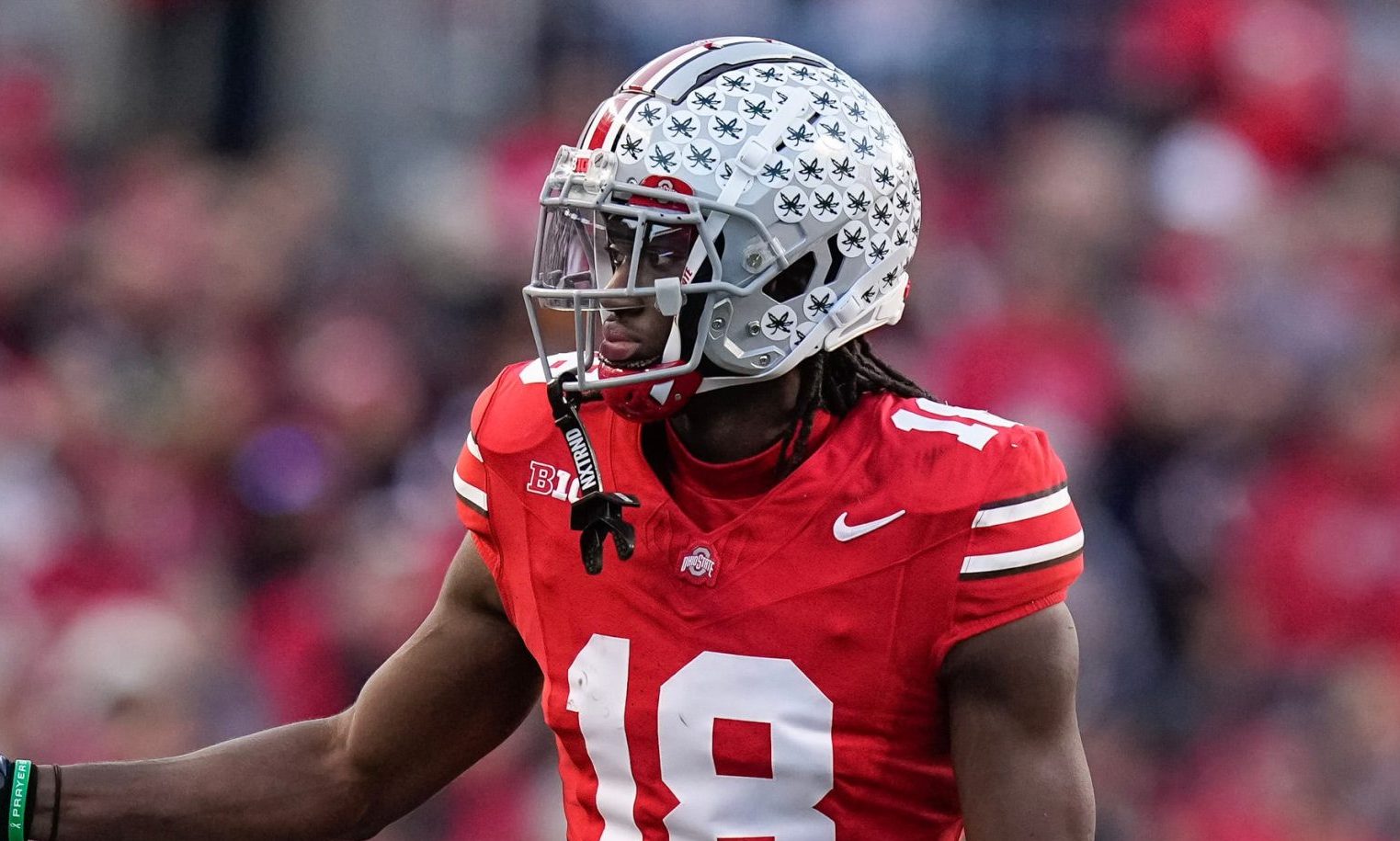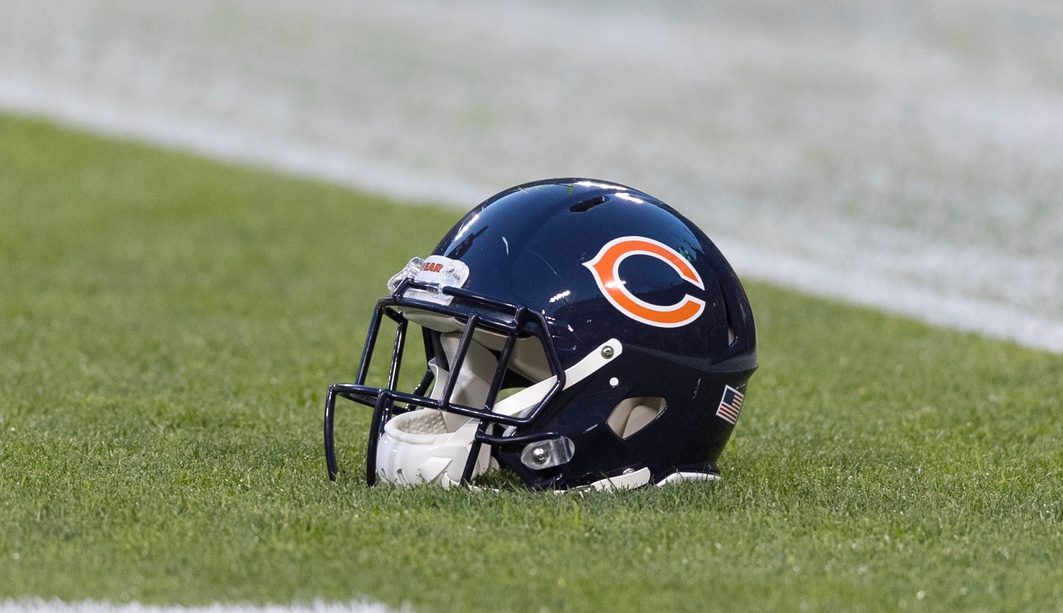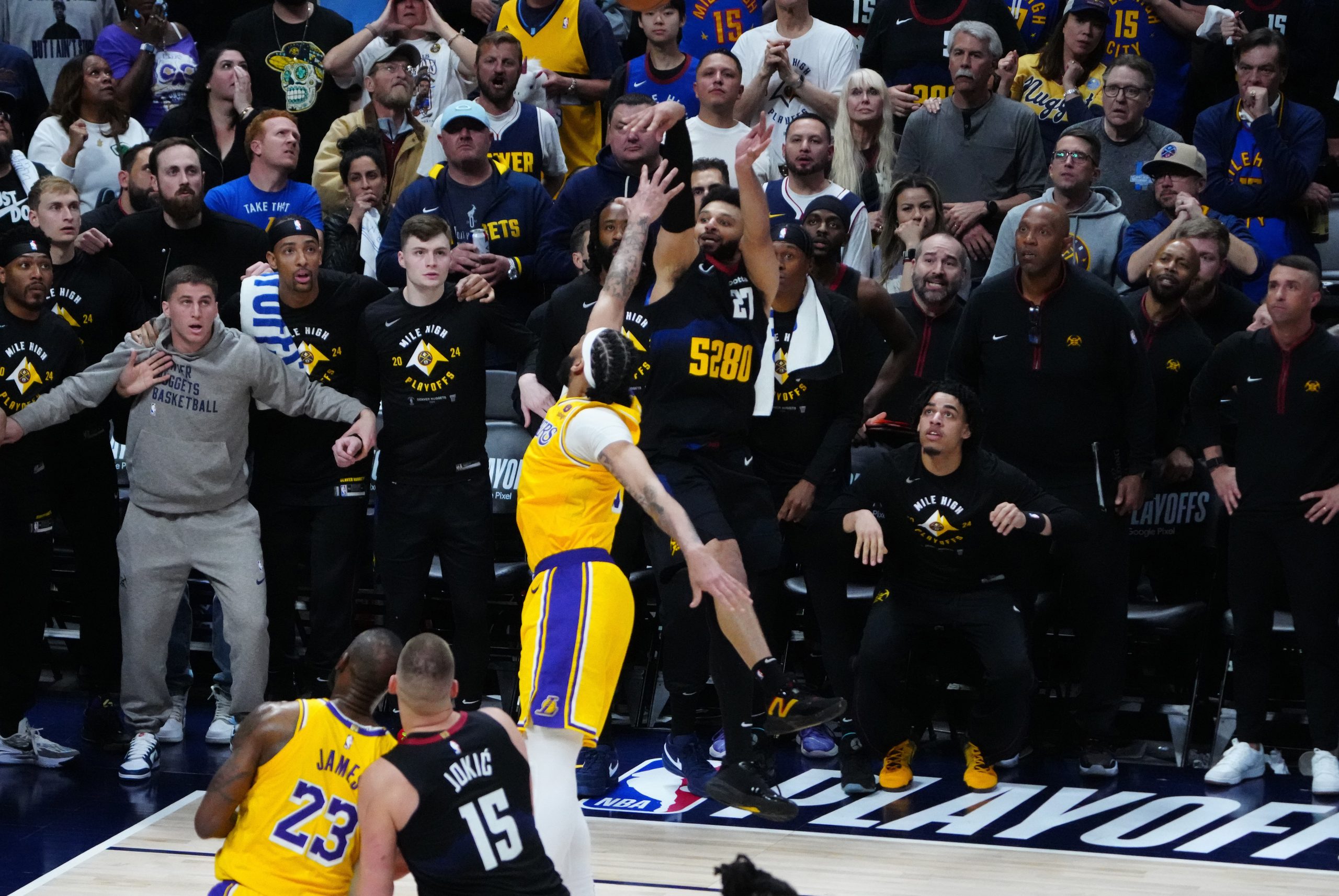 As the 2015 NBA Finals wore on, and the Cleveland Cavaliers wore down, the only reason the undermanned Eastern Conference champions were even competitive in all six games was because of LeBron James. Here are his per-game stats for the series: 35.8 points, 13.3 rebounds, 8.8 assists. Perhaps even more impressive is the fact he led both teams in all three categories. That’s insane. Yet, not quite insane enough to win over enough media members to become only the second Finals MVP from a losing team.
As the 2015 NBA Finals wore on, and the Cleveland Cavaliers wore down, the only reason the undermanned Eastern Conference champions were even competitive in all six games was because of LeBron James. Here are his per-game stats for the series: 35.8 points, 13.3 rebounds, 8.8 assists. Perhaps even more impressive is the fact he led both teams in all three categories. That’s insane. Yet, not quite insane enough to win over enough media members to become only the second Finals MVP from a losing team.
LeBron did manage to land four votes, while Andre Iguodala garnered seven (only 11 media members vote for Finals MVP). To the delight of conspiracy theorists everywhere, Steph Curry received zero votes (if Iggy and Curry split enough votes, LeBron’s chances of winning would have increased greatly). Now, I’m sure there have been instances of Finals MVP voters not reaching a consensus on a winner, but it’s probably safe to assume the division comes from choosing players on the winning side — not the losing side.
Finals MVP voting breakdown. None for Stephen Curry. pic.twitter.com/72WNSIhTtp
— David Vertsberger (@_Verts) June 17, 2015
After Tuesday night’s vote, we can also safely assume that there will never be another Finals MVP from a losing team. It’s not that people aren’t averse to voting for a losing player — four voters just did that — it’s that there aren’t enough voters willing to go that far. It also didn’t help that the Cavs lost in six games, including dropping three in a row to close it out. Perhaps if the series went the distance, with LeBron putting up a 40-15-12 in a close Game 7 loss, he’d have a better chance. Obviously, we’ll never know. Thus, four votes is about as close as we’ll ever see.
I don’t have an archive of Finals MVP ballots, but LeBron’s four votes is probably the most a losing player has received since the 1996 Finals, which featured a somewhat bizarre moment in Finals MVP voting history. Yeah, I know what you’re thinking: “Isn’t that the 72-10 Bulls team with Michael friggin’ Jordan? He was definitely the Finals MVP.” Not so fast. Yes, His Airness won the MVP, but it was close. And, no, Scottie Pippen had nothing to do with it.
If you recall (or maybe you don’t), the 1996 Finals was Jordan’s worst Finals, and by a large margin. He averaged 27.3 points per game, and he had to work really hard to get there. He broke the 30-point barrier only once. To put that in perspective, Jordan had failed to hit 30 points in only three Finals games through the Bulls’ first three-peat. The Sonics’ defense gave him fits, especially after George Karl finally pulled his head out of his ass down 3-0 and put Gary Payton (you know, just the guy who won Defensive Player of the Year) on him.
Here’s where things got weird: the Bulls won the series, 4-2, but when it came time for Finals MVP, voters were split. Do you give it to Jordan? Sure, he’s the best player in the world, the league MVP, and he was the best player on the winning team. Or was he? Jordan received six votes, but Dennis Rodman received two. So, that’s eight votes (out of eleven). Maybe Scottie Pippen got the other three? Nope. Those went to Shawn Kemp.
Kemp was an absolute beast in that series, putting up 23 points and 10 rebounds, with two signature dunks (one on Pippen, one on Rodman), and is the only human being on the planet who can legitimately argue that he outplayed Jordan in an NBA Finals. When it came time to vote, three media members rewarded him for his efforts in a losing cause:
Jordan received six of a possible 11 votes while Kemp garnered three votes and Rodman two. “Michael Jordan was the MVP of this Final,” Jackson said. “Everybody had their moments. But Michael was consistently the force and factor for us in this series.
Going down 3-0 and fouling out of Game 6 probably didn’t help Kemp’s case (although, he did have 18 points and 14 rebounds when he picked up #6). To compare, LeBron just submitted an all-time Finals stat line, dragged a team of role players to a 2-1 series lead, and had them in every game until their legs fell off in the fourth quarter. And all he got was one more vote than Shawn Kemp. In other words, you’re safe, Jerry.






